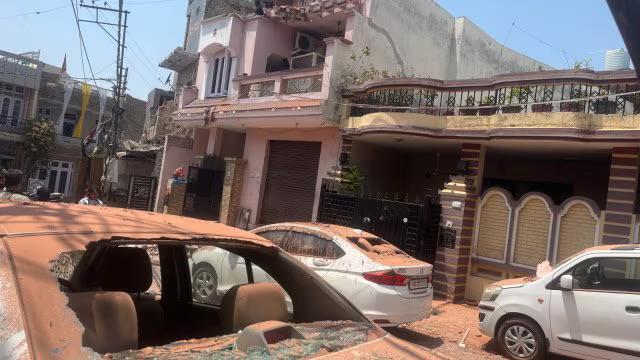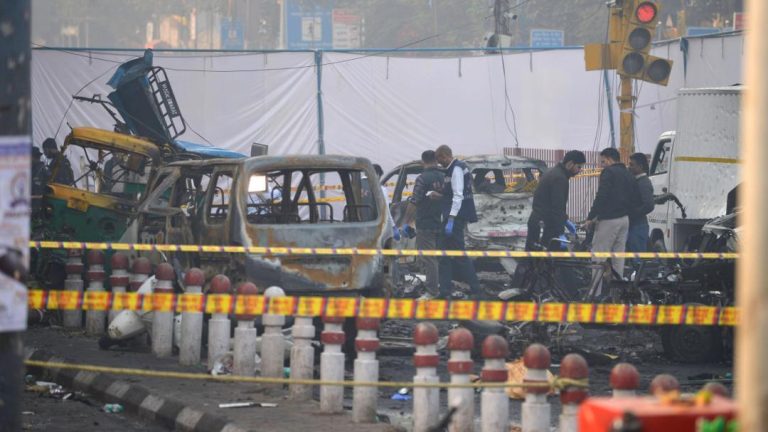
I Feel I’m Alive Again: J&K Resident After Ceasefire Announcement
For decades, the fragile border between India and Pakistan has been a constant source of anxiety and fear for the residents of Jammu and Kashmir. The recurring skirmishes, shelling, and violence have taken a toll on the people, leaving them with a sense of perpetual unease. However, with the recent announcement of a ceasefire between the two countries, a glimmer of hope has emerged. For Khalil Ahmad Bandey, a 70-year-old retired forest official in Poonch, the news has brought a sense of relief and rejuvenation.
“You can’t imagine; we people had vowed so many niyaz (an offering of food or other gifts to fulfil a vow) to have a ceasefire between the two countries,” Bandey said, his voice filled with gratitude. “Today, I feel I am alive again,” he added, his eyes shining with tears.
Bandey’s words convey the magnitude of the impact that the ceasefire has had on the people of Jammu and Kashmir. For years, they have been living in the shadow of violence, constantly worried about the next shell, the next attack, or the next loss. The constant fear has taken a toll on their mental and physical health, leaving them feeling drained and exhausted.
The ceasefire is not just a welcome respite from the violence but also a chance for the people to catch their breath and begin rebuilding their lives. For Bandey, it means that he can finally lay to rest the memories of his late son, who was killed in a Pakistani shelling incident in 2019.
“My son was just 35 years old when he was killed. I had vowed to God that if he could bring peace between India and Pakistan, I would perform his last rites,” Bandey said, his voice cracking with emotion. “Today, I feel that vow has been fulfilled.”
The ceasefire has also brought a sense of hope to the people of Jammu and Kashmir, who have been longing for a more peaceful and stable future. For them, the agreement represents a chance to break free from the cycle of violence and build a better life for themselves and their families.
“Ceasefire means a lot to us. It means that our children can go to school without fear, that we can work without worrying about the next shell, and that we can live without the constant fear of death,” said Sajad Ahmad, a resident of Poonch.
The ceasefire is not just a local issue but has far-reaching implications for the entire region. It is a step towards normalizing relations between India and Pakistan, which have been strained for decades. The two countries have been engaged in a long-standing dispute over Kashmir, which has been the root cause of tension and violence.
The ceasefire is a welcome development, not just for the people of Jammu and Kashmir but also for the international community. It is a sign that even the most intractable conflicts can be resolved through diplomacy and dialogue.
The announcement of the ceasefire has also brought a sense of relief to the security forces, who have been working tirelessly to maintain peace and order in the region. For them, the ceasefire represents a chance to shift their focus from counter-terrorism operations to more pressing issues like development and infrastructure.
“The ceasefire has given us a chance to focus on the development of the region. We can now work on building roads, schools, and hospitals without worrying about the next attack,” said Colonel Suresh Kumar, a senior officer in the Indian Army.
As the people of Jammu and Kashmir begin to rebuild their lives, they are filled with a sense of hope and optimism. The ceasefire is not just a temporary reprieve from violence but a chance to build a more peaceful and stable future.
“We are not asking for much. We just want to live in peace, to work in peace, and to build a better life for ourselves and our families,” said Bandey, his eyes shining with tears.
The announcement of the ceasefire is a significant step towards achieving this goal. As the two countries work towards implementing the agreement, they must also remember the human cost of conflict and the importance of rebuilding and restoring the lives of those who have been affected.
For Khalil Ahmad Bandey, the 70-year-old retired forest official, the ceasefire represents a chance to relive his life and to make new memories with his family. As he said, “Today, I feel I am alive again.”






